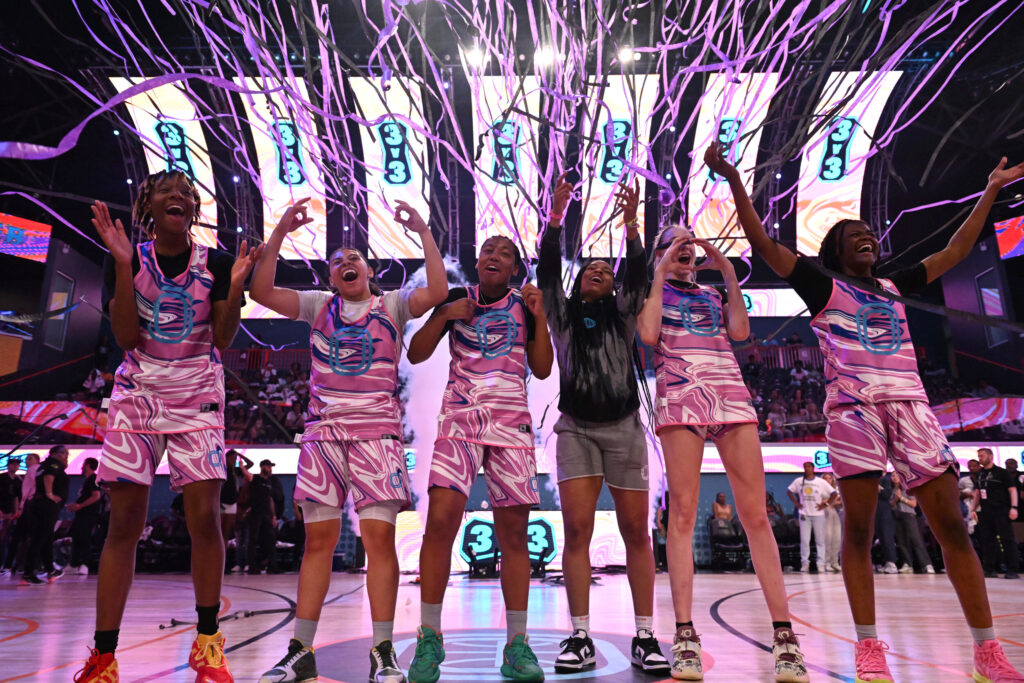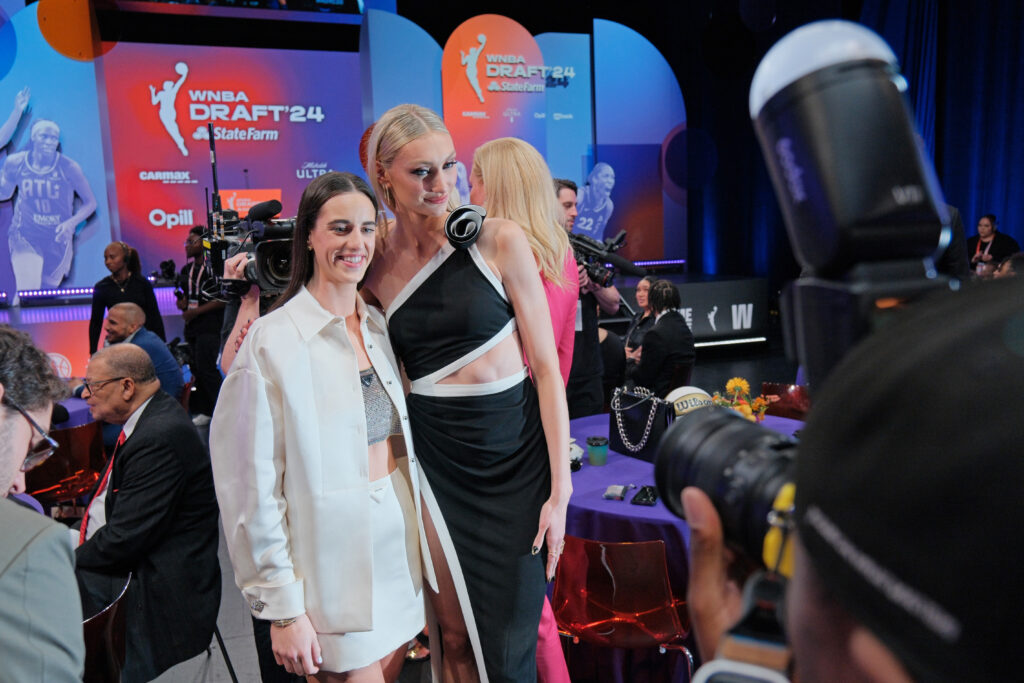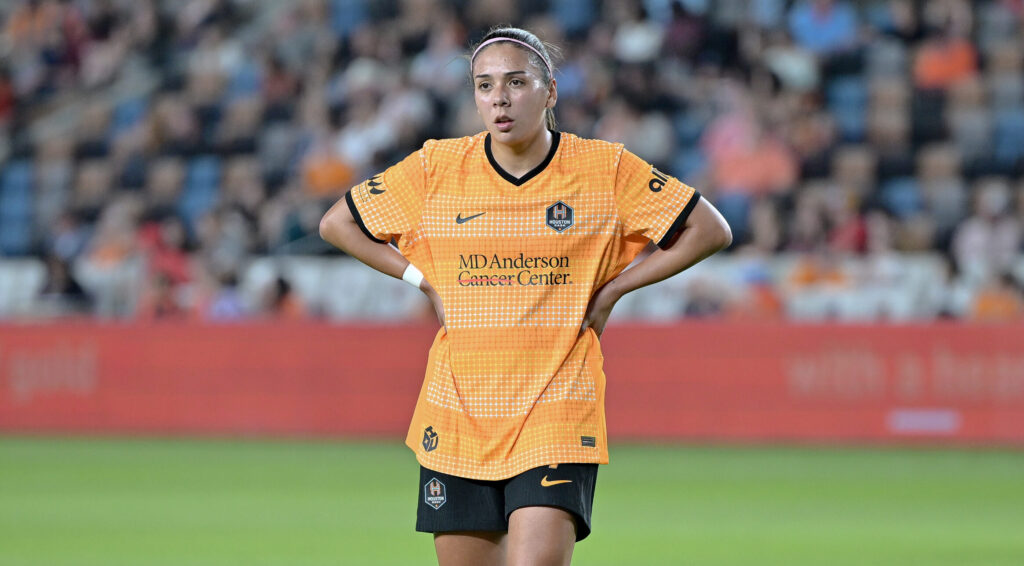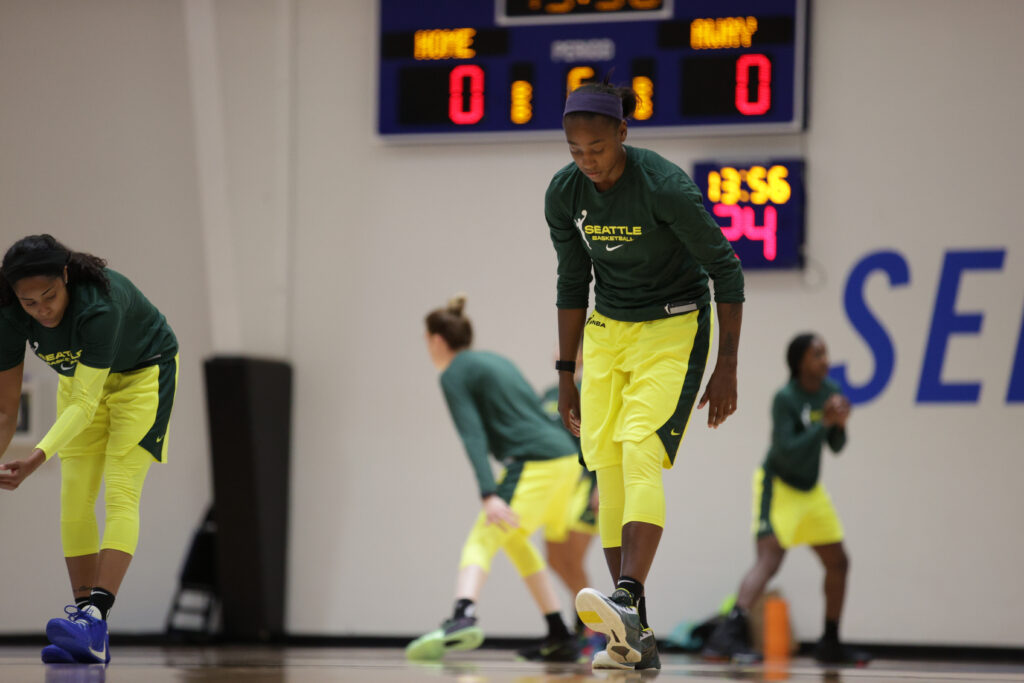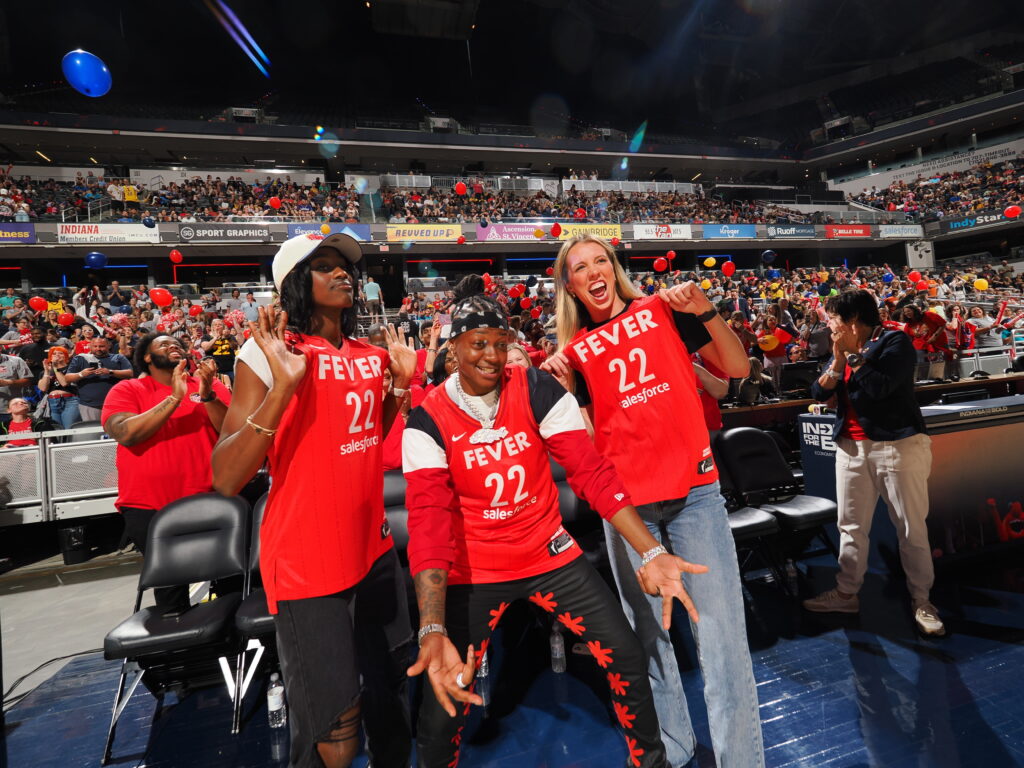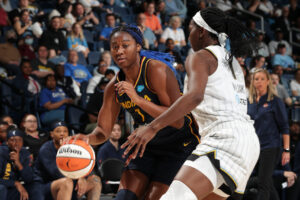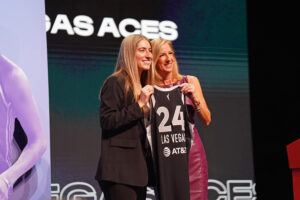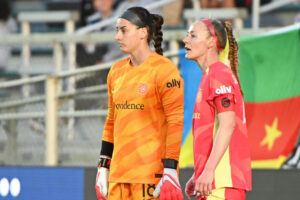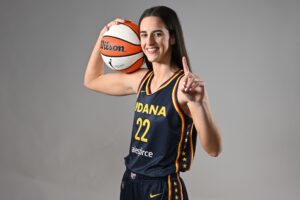Just over a year ago, Oregon’s Sedona Prince highlighted in a TikTok video the inequities in amenities between the 2021 Division I men’s and women’s basketball tournaments. The outrage that ensued pushed the NCAA to apologize and make substantive changes based on an independent investigation into gender discrimination.
Now, a month after the Women’s Final Four in Minneapolis broke attendance records, those same college basketball stars who have been vocal about the need for change are using their platforms to empower the next generation.
On May 13 and 14 in Atlanta, Overtime hosted The WBB Takeover, the latest in its series of high-profile events to help grow the women’s game. Presented by Gatorade and executive produced by UConn guard and Gatorade athlete Paige Bueckers, the Takeover showcased 15 of the nation’s best recruits in a series of competitions.
While the young stars battled it out, they were mentored by some of the most influential names in women’s basketball, including South Carolina’s Aliyah Boston and Zia Cooke, Stanford’s Haley Jones and Baylor’s Jaden Owens. In addition to multiple national championships and other trophies between them, the college mentors have been learning how to navigate the new landscape of NIL rights and larger social media followings.
“With women’s basketball, I do think that it’s improving for college women and for the WNBA,” Cooke said of the shift in the sport. “People are starting to watch us more. For the high school girls, as far as how they’re able to brand themselves now, I see it all for the better.”
This is the second Takeover Overtime has hosted in celebration of the women’s game. In Brooklyn in 2019, Cooke earned the title of “Queen of the Court.”
She followed that performance with perhaps an even more rewarding one in 2022 — by coaching the winning team in the 3×3 competition. Top class of 2022 recruit Talaysia Cooper and class of 2023 recruits Milaysia Fulwylie, Angelica Velez, KK Arnold and Chloe Kitts took care of business for Team Zia Cooke.
All the players who participated saw their social media followings grow, some by as much as 40 percent in the week after the event, according to Overtime.
The next wave of college stars, though just 3-4 years behind the mentors and rising college seniors, are experiencing social media in new ways. The high school class of 2022 boasts players like UCLA-bound Kiki Rice and LSU-bound rapper Flau’jae Johnson, both of whom have thousands of followers on Instagram. They’re learning the highs and lows that come with that level of attention.
“When it comes to criticism, I think a lot of people can get caught up in that when you first get into the spotlight,” Jones said. “Social media individually is interesting because you’re growing a fan base. It’s cool to know you have all these people looking up to you and following you, but it’s also something I think you can spend too much time on. If you have the right perspective, it can be a place for you to share who you are, what you believe in, and find a fan base that supports that.”
Modern-day recruits, while following the same NCAA rules as their predecessors, also have social media to help inform their process.
“I think recruiting has changed,” Boston said. “There’s a lot of talent in women’s college basketball. A lot of different teams are starting to win more games. Being able to show off how your team is developing and how coaches are has helped a lot of kids realize where they want to go.”
Top women’s college basketball programs generated anywhere from hundreds of thousands to over a million interactions on their official team social accounts in March 2022. Bueckers recently became the first women’s college basketball player to surpass 1 million followers on Instagram.
“Social media has brought a lot more attention to women’s college basketball,” Owens said. “Players being themselves on social media, understanding that they’re welcome in this world as they are, brands reaching out to players and liking who they are and what they represent — it’s putting more of a spotlight on us that we’ve been deserving.”

Between the Men’s and Women’s Final Fours this year, eight of the top 10 players with the highest NIL value were women, according to Opendorse. For the first time, the NCAA also granted the use of “March Madness” branding for the women’s tournament, after previously reserving it for the men’s championship.
“The energy was completely changed,” Boston said about this year’s women’s tournament – now officially called March Madness. “The gyms were packed, which I think was really special because you get to see how much women’s basketball is continuing to grow each and every day.”
While men’s college sports, namely basketball and football, have been subject to heightened scrutiny since the introduction of NIL last year, women’s basketball players have found ways to use the new rules to their advantage.
“NIL brings more attention to women’s college basketball, especially with some women’s college athletes partnering with major brands,” Boston said. “It allows people to see who we are and get familiar with us and how we play the game.”
There’s no shortage of major brand deals in women’s college basketball. Boston is partnered with Bose, and Jones with Beats. Cooke and Owens both have NIL deals with H&R Block, among others.
Even some high school recruits are beginning to test the NIL waters, now that six states have passed legislation allowing high school athletes to benefit from it.
To the players seeing the investment and reception surrounding women’s basketball change in front of their eyes, it’s only the beginning.
“The more you see it, you’re gonna have to see it,” Cooke said. “Hopefully we can get people who see that we actually can hoop. We can do the same things the men can do. I think people are starting to notice that now.”
Caroline Makauskas is a contributing writer for Just Women’s Sports. She also writes about college basketball for Blue Ribbon Sports and covers a variety of sports on her TikTok @cmakauskas. Follow her on Twitter @cmakauskas.
